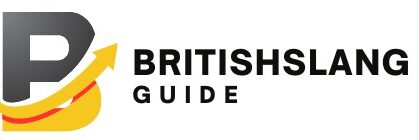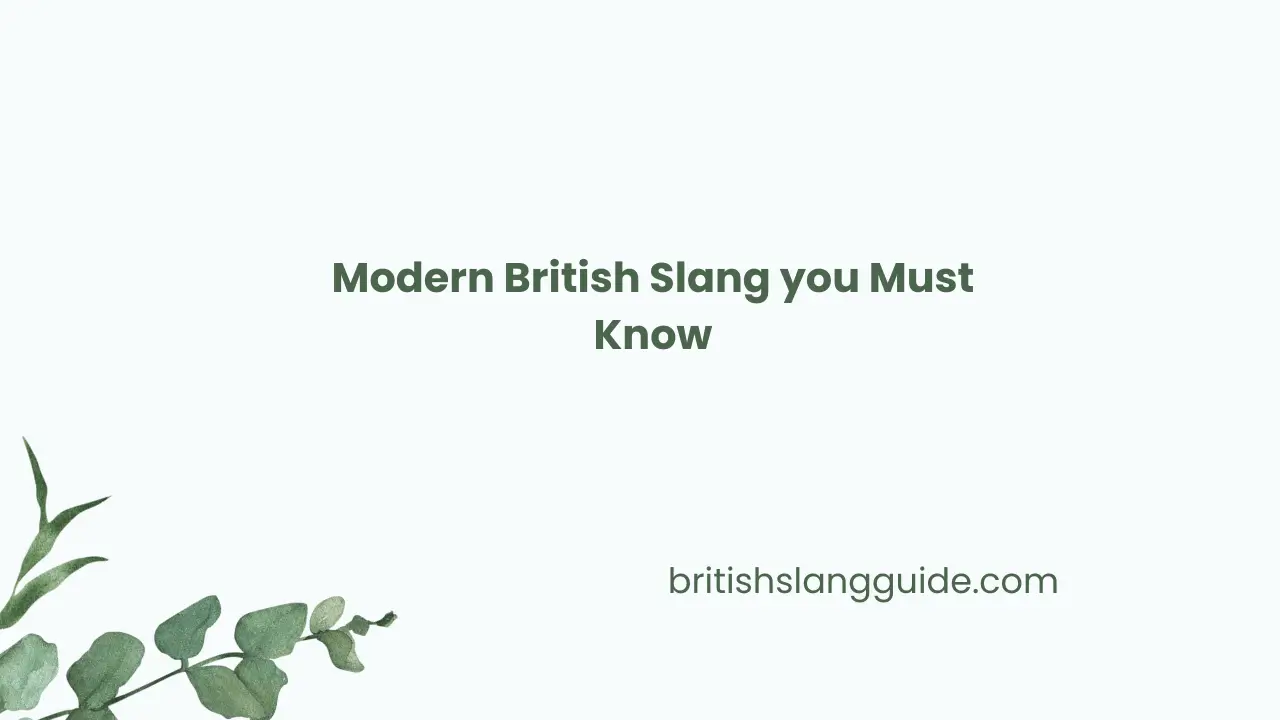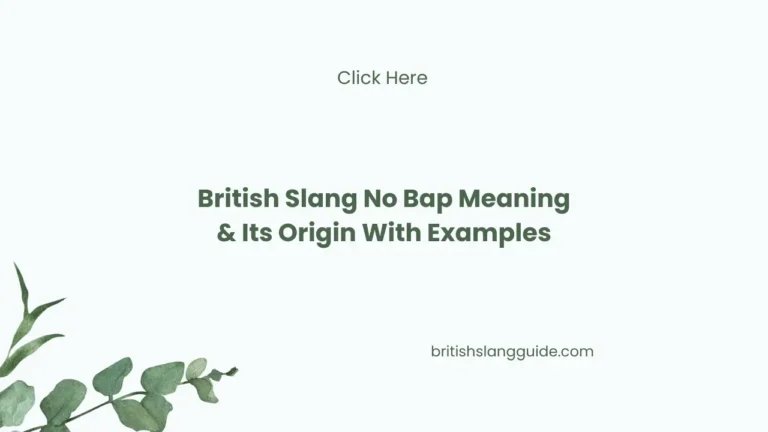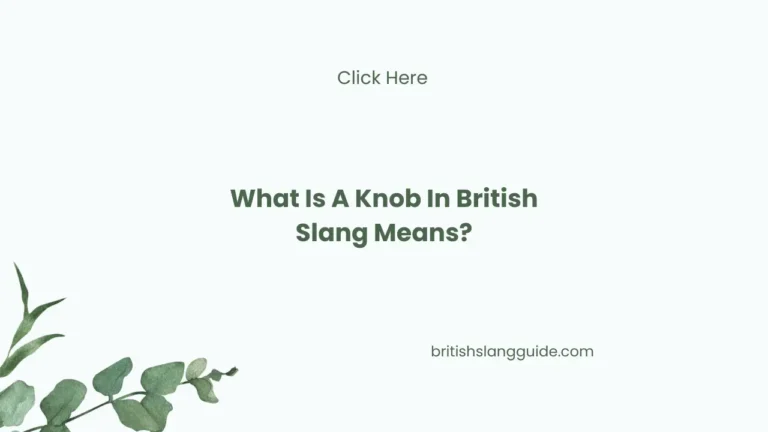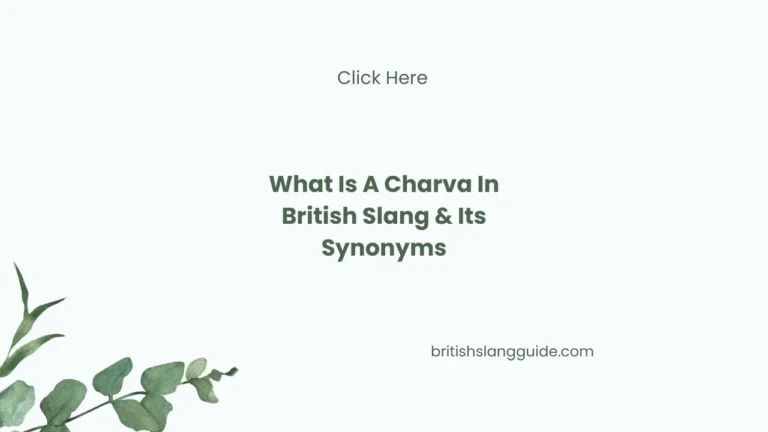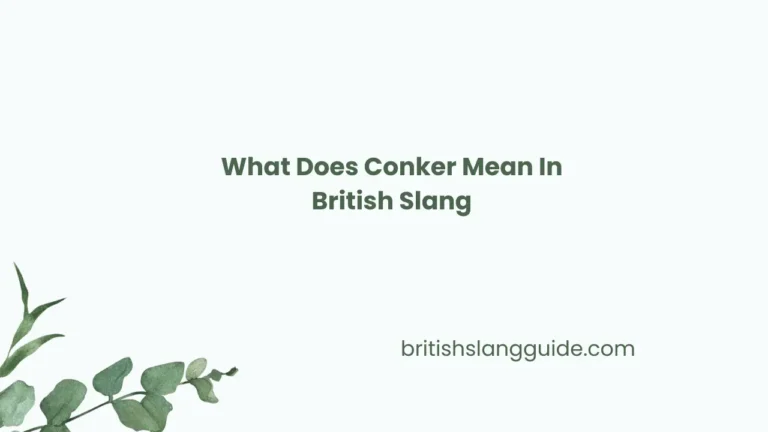Modern British Slang You Must Know
British slang is a vibrant and dynamic feature of the language. It is not only restricted to certain age groups or social circles. Whether you’re planning a vacation to Britain, conversing with friends from the UK, or seeing a British TV show, knowing some modern british slangs can help you to communicate more naturally and funfully.
At first, certain words could perplex you; but, after you get the hang of them, they will give your vocabulary some British character.
Today we will discuss fifteen of the most often used current British slang terms with their definitions and use examples from daily life.
1. Bloke
Commonly used in British slang, “bloke” is a basic term for a male. Like “guy” in American English, it’s a pleasant, informal approach to address someone in regular conversation. You might hear it used when friends are talking about someone they’ve met or a casual acquaintance.
Example: “That bloke at the bar last night was hilarious!”
2. Knackered
When you are really tired, “knackered” is the ideal adjective. Physical fatigue following a tough day at work, exercise, or any event that leaves you utterly exhausted is a common phrase to use. Brits use it casually, often at the end of a busy day or night.
Example: “I’m absolutely knackered after that five-mile walk!”
3. Dodgy
You would say something or someone is “dodgy,” if they look erratic or a bit off. People, circumstances, or objects that look dubious or suspicious are frequently labeled using this word.. It’s versatile and can be applied to anything from a dubious deal to a sketchy neighborhood.
Example: “That car salesman seemed dodgy—better not buy from him.”
4. Chuffed
Being “chuffed” means being really pleased or happy about something. Usually over personal achievements or good news, Brits show their joy or pride in this positive manner. Someone can remark they’re thrilled about landing an award, starting a new career, or just having a fantastic day.
Example: “I’m so chuffed about my promotion at work!”
5. Loo
Location of the bathroom?” Should you be in the United Kingdom, you may probably hear someone referring to the bathroom as the “loo.” The courteous, go-to phrase for the toilet is polite; so, it’s crucial to know while visiting the UK since requesting the bathroom might cause perplexing responses.
Example: “Excuse me, where’s the nearest loo?”
6. Quid
Instead of saying pounds sterling, Brits often refer to money as “quid.” Much like “bucks” in American English, “quid” is used informally to describe amounts of British currency. Whether it’s one quid or fifty, this slang is used universally across the UK.
Example: “It only cost me five quid to get in.”
7. Faffing
Someone is “faffing,” or squandering time if they are being ineffective, taking too long, or careless. This phrase is used to characterize dawdling—that is, doing things in a circuitous manner instead of straightforwardly. Brits frequently use it when someone is completing a basic chore that requires more complexity than required.
Example: “Stop faffing around and let’s get going!”
8. Innit
Contracted from “isn’t it,” “innit” is used often at the conclusion of sentences for emphasis or agreement. Modern British slang uses this flexible term, which may be employed in a variety of talks independent of grammar accuracy. In casual talks, you will hear it frequently.
Example: “It’s freezing today, innit?”
9. Mug
A “mug” in British slang is someone who is readily duped or gullible. When someone falls for a prank or makes a foolish error, it is sometimes used in a fun or mocking manner. Though it’s not the most pleasant word, it’s frequently used to make fun of pals.
Example: “You paid full price for that? You’re such a mug!”
10. Cheeky
“Cheeky” describes behaviour that’s playfully rude or impolite, but usually in an endearing or light-hearted way. Whether someone sneaks the last biscuit or makes a flirty comment, it can be considered “cheeky.” Brits love using this term, often to describe something a bit naughty but harmless.
Example: “He gave me a cheeky grin after nicking my fries!”
11. Gutted
You are “gutted” when something goes horribly wrong and leaves you devastated or severely dissatisfied. Often used in emotional circumstances, such as missing out on a significant occasion or losing something valuable, this colloquial expression catches the intensity of feeling let down or disappointed.
Example: “I was gutted when I missed the final episode of my favorite show.”
12. Scran
Search for “scran” if you’re hungry, particularly for a decent dinner. Food is referred to using this colloquial term, which is especially common in northern England. Usually used in a laid-back, informal manner, this is the expression individuals use while considering grabbing dinner.
Example: “Let’s get some scran before heading to the pub.”
13. Kerfuffle
Often about something really inconsequential, a “kerfuffle” is a little disturbance or frenzy. Usually not too serious, this funny phrase is used to characterize times of disorder or conflict. It’s the ideal term for characterizing a little disagreement or ambiguity that doesn’t really represent a major concern.
Example: “There was a bit of a kerfuffle at the checkout, but it’s all sorted now.”
14. Leg it
When you need to leave quickly or run away, you “leg it.” Often used in a lighthearted or hurried situation, this sentence suggests someone is leaving quickly. Whether it’s to avoid conflict or just catch a bus, this word perfectly expresses the impulse to run off swiftly.
Example: “We were late, so we had to leg it to the train station.”
15. Gobsmacked
Usually in a way that leaves you briefly speechless, being “gobsmacked” is exactly surprised or impressed. Brits employ this hyperbolic language when something really remarkable occurs. The ideal term to capture a moment of total astonishment is “perfect”.
Example: “I was gobsmacked when they announced I’d won the award!”
Wrapping Up:
Every day communication reveals the inventiveness and comedy of the individuals who use modern British slang, which is a vivid component of life. From expressing tiredness with “knackered” to characterizing astonishment with “gobsmacked,” these modern british slangs can help you to better grasp British culture and liven up an interesting dialogue. Whether you’re watching British TV, chatting to friends, or personally visiting the UK, knowing just a handful of these terms will help you feel more at ease in British social circles.
Knowing these 15 contemporary British slang terms will help you to engage in discussions with somewhat more confidence.
So the next time you’re talking with a Brit, don’t hesitate to toss in a “chuffed” or “knackered” and wow them with your improved colloquial language.
